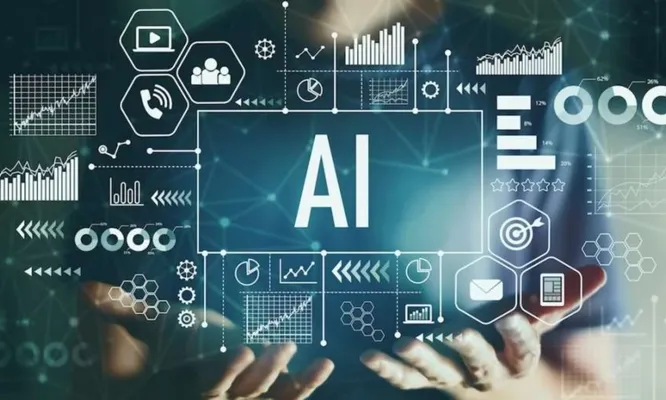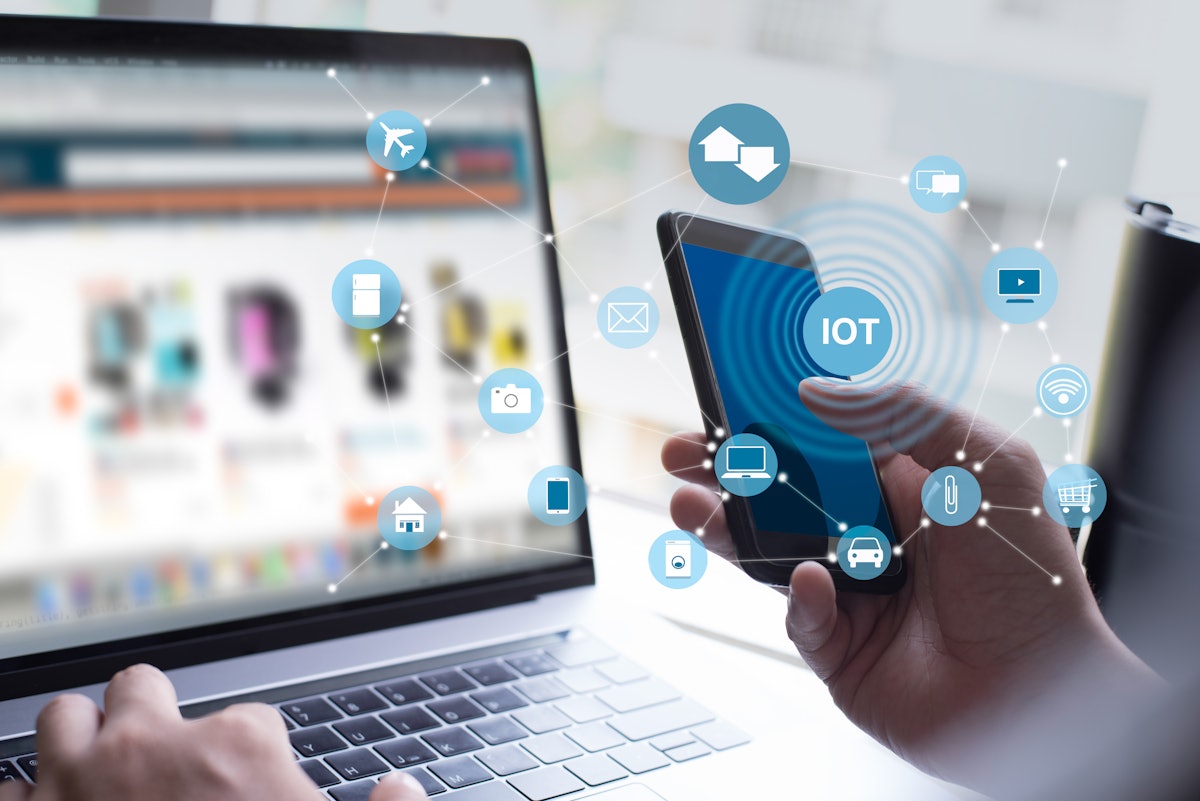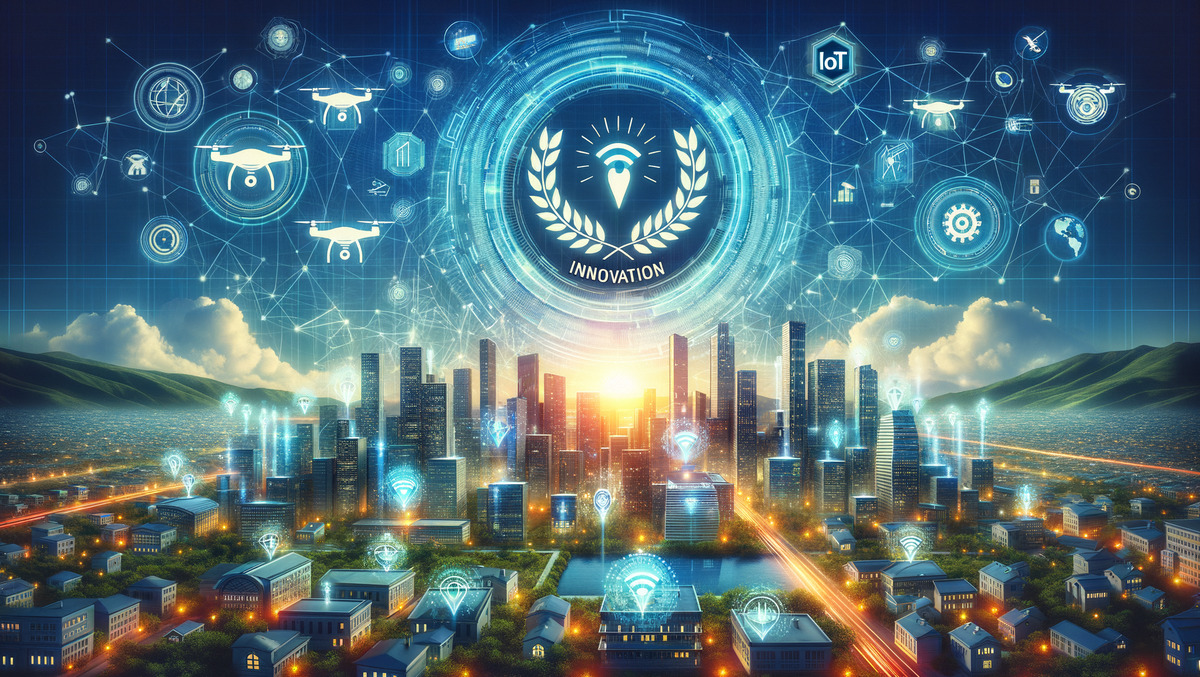- TECHSWU
- Posts
- TECHSWU #4
TECHSWU #4
Tech Stuff We Use



🌟 The Industrial Metaverse: Where Sci-Fi Meets ROI | CDOTrends 🌟
🔮 Siemens introduces the concept of the industrial metaverse, a virtual world mirroring machines and factories, where problems can be quickly identified and fixed using real-time data.
💡 Gartner defines the industrial metaverse as the convergence of the physical and digital world, allowing people to interact with machines in an immersive environment.
🏭 Siemens showcases its Digital Native Factory in Nanjing, where a digital twin optimized the building and increased manufacturing capacity by 200% and productivity by 20%.
🔍 Gartner emphasizes the benefits of real-time data visualization, training and simulation, and enhanced remote collaboration in the industrial metaverse.
🔬 Specific use cases for the industrial metaverse include virtual prototyping, product development, end-testing, production line optimization, and shop floor operations.
📶 The industrial metaverse is expected to be driven by increased connectivity from 5G and eventually 6G.
👩💼 Technology innovation leaders in manufacturing and supply chain operations are the primary audience for the industrial metaverse.
🌐 The future of industry is here – welcome to the Industrial Metaverse!

Kenya is embracing technology to enhance security at border points. 🌐🔒 The country has adopted an integrated method of managing borders, leading to the formation of the Border Control and Operations Coordination Committee (BCOCC), which brings together various government agencies involved in border operations. 🤝💼 The National Border Management Conference, organized by the Ministry of Interior, is being held in Nairobi to discuss the use of technology in border management. 📱🌍 One of the key topics of discussion is the global use of technology for enhanced surveillance. 🌎📹 The Kenya Revenue Authority will soon deploy drones to support operations across border points. 🚁✨ This use of technology is seen as crucial due to the limited number of security officers on the ground. 💪🛡️ The conference will provide a platform for different agencies to share success stories and discuss the use of technology in managing borders. 🗣️👥

Porsche is considering putting its Mission X concept-inspired hypercar into production, and if it gets the green light, it will come with all-wheel drive (AWD) instead of the originally planned rear-wheel drive layout. 🚗💨 The AWD setup is aimed at improving efficiency and extending the range of the electric hypercar by increasing energy recuperation. ⚡ The Mission X concept promises extreme downforce and was showcased with a 900-volt charging system, allowing for faster charging speeds. 🔋 However, the production version may see some changes to the wheelbase and the addition of other technologies seen in the updated Porsche Taycan Turbo S, such as faster charging capabilities. Overall, the move to an AWD setup is logical for Porsche in terms of range and weight distribution. 🔄💡

🤖 The rise of artificial intelligence (AI) is revolutionizing the procurement process in the hospitality industry, offering a range of benefits. AI can automate routine tasks, such as generating purchase orders and matching invoices, freeing up human resources for more critical work. It can also improve the accuracy of procurement data by analyzing trends and patterns in large datasets. This provides organizations with valuable insights and actionable reports for informed decision-making. AI can streamline supplier selection by automatically analyzing supplier data and identifying the most suitable suppliers based on specific criteria. Additionally, AI improves transparency and accountability in e-procurement processes, reduces the risk of human error, and enhances predictability. While there may be challenges in integrating AI, such as bias in algorithms and the need for skill development, the benefits outweigh the hurdles. In conclusion, AI is redefining modern hospitality procurement and offers intelligent automation for businesses. 🌟

🤖 The question is whether artificial intelligence (AI) will actually make companies more efficient. Many mainstays of the American customer experience, like 🍔 Wendy's menu boards and 🍦 Ben & Jerry's grocery store freezers, are already powered by AI. But economists are skeptical about its impact on productivity.
💼 Rapid productivity improvement is the dream for companies and policymakers. It allows for increased profits and wage gains without rapid inflation. However, economists and officials doubt that AI has spread enough to show up in productivity data.
💡 The Federal Reserve chair and the president of the New York Fed are skeptical about the short-term impact of AI on productivity growth. Economist Robert Gordon argues that while new technologies are important, they haven't been transformative enough.
👀 Overall, companies are hopeful that AI will increase productivity, but economists remain cautious. Only time will tell if AI can truly boost efficiency.

VTouch has developed a smart ring called WIZPR 💍, an AI wearable that allows users to communicate with their preferred AI assistants by whispering into the device. The WIZPR ring is part of a new generation of AI gadgets that are revolutionizing commerce by offering more intuitive and seamless ways to engage with digital services. Other notable examples of AI-powered wearables include the Humane.ai pin 📌 and Meta smart glasses 🤓. The voice economy is growing, with significant consumer interest in voice technology 👂, and these AI wearables are providing a more seamless and intuitive way to communicate with AI. Additionally, AI gadgets offer benefits to businesses, including improved customer experiences, increased accessibility, personalized service, and opportunities for new marketing channels 📣✨. The shift toward spoken AI interfaces is expected to revolutionize manual work and provide unprecedented data-driven insights 🚀📈.

🚚 The Internet of Things (IoT) technology has revolutionized the trucking industry by allowing shippers, carriers, and logistics service providers to track shipments in real-time and monitor conditions. Some highlights from the article include:
• IoT technology connects trucks, trailers, and cargo to the internet through devices and sensors. 📶
• GPS trackers and telematics devices can track the location of shipments in real-time, enhancing fleet visibility and cargo security. 🔍🚛💼
• The data collected from GPS and telematics devices can be used for route optimization, reducing delivery times and fuel consumption. 🛣️⏱️
• IoT devices can monitor the condition of cargo, including temperature, humidity, and security, to minimize damage and ensure product integrity. 🌡️🔒
• However, the use of IoT devices for driver monitoring raises privacy concerns and may affect drivers' autonomy. 👁️📹🚛
• Cybersecurity is a significant risk with the rise of IoT technology, requiring trucking companies to invest in comprehensive security measures. 🔒🔐
The future of IoT in the trucking industry holds immense promise, with the potential for even greater innovation through the integration of AI, machine learning, and other emerging technologies. 🌟💡🚚

David Autor, a labor economist at MIT, who is known for his research on how technology and trade have affected American workers, is now arguing that artificial intelligence (🤖) has the potential to benefit the middle class. In a recent paper published in Noema Magazine, Autor states that AI, if used effectively, can help restore the middle-skill, middle-class jobs that have been lost due to automation and globalization.
Autor believes that generative AI, which can produce realistic images, videos, and mimic human behavior, may reverse the trend of job erosion. He suggests that AI can change the economics of decision-making and allow more people to take on tasks that are currently carried out by experts, such as doctors and software engineers. This could lead to more valuable work being done by a broader range of people, potentially increasing their wages and lifting more workers into the middle class.
Despite being initially skeptical of AI, Autor now sees it as a fundamentally different technology that presents new opportunities. He believes that if AI is used well, it can assist in revitalizing the middle class in the US labor market. 📈💼✨

🌊 Stockton, California is set to become a tenant on a floating data barge at the Port of Stockton. The Stockton 1 Data Center, housed on a repurposed freight barge, has been operating for more than three years and is currently home to various public and private sector tenants for data backup and disaster recovery purposes. The city's Chief Information Officer, Jamil Niazi, learned about the facility after being appointed in October, and was impressed with its state-of-the-art technology, security features, and close proximity to Stockton. The city plans to sign a lease for space on the barge and will use federal funding to install Cisco infrastructure for data backup and replication. The police department, fire department, and finance and human resources data will be the first to be backed up on the barge. The facility has already attracted large tenants, including San Joaquin County and a prominent artificial intelligence company.
👉 Highlights from the article:
• The Stockton 1 Data Center is a state-of-the-art facility housed on a repurposed freight barge at the Port of Stockton. 🚢
• The facility offers 80 percent more energy efficiency than a land-based data center, 30 percent lower operating costs, and 30 percent less air emissions. 💡
• The city of Stockton plans to sign a lease for space on the barge and use federal funding to install Cisco infrastructure. 💰
• The facility will be used for data backup and replication for the police department, fire department, and finance and human resources data. 🔒
• The facility has already attracted large tenants, including San Joaquin County and a prominent artificial intelligence company. 🏢

🏆 Juniper Research has announced the opening of entries for the 2024 Future Digital Awards for Smart Cities & IoT Innovation. The awards seek to recognize and reward organizations that are leading the way in technological advancements. The categories include IoT Innovation, Sustainability & Smart Cities Innovation, and Judges Choice awards. Some of the highlights from the article are:
• The awards aim to recognize vendors working towards a connected and sustainable world ✨🌍
• Categories include Best IoT Device Management Platform, Best IoT Security Solution, and Quantum Computing Innovation of the Year 💡🔒🚀
• The submission period runs until May 3, 2024 ⏰
• Winners will be announced in June 2024 🏆🗓️
• Juniper Research provides research and analysis on digital technology, telecommunications, and related industries, offering insights into market trends and opportunities 📊📱💡
• The company covers topics such as mobile payments, e-commerce, digital advertising, cybersecurity, and the impact of emerging technologies. 💳💻🔒🌱

📈 In an era dominated by technology and AI, Kevin Moffitt, president of Office Depot, emphasizes the importance of authentic human connections with customers. While technology has reshaped business operations and customer experiences, Moffitt highlights a resurgence in appreciation for non-technical and interpersonal relationships. He believes that combining technology with human-to-human interactions is key to creating a differentiated brand experience. Moffitt offers three key considerations for business leaders looking to meet evolving customer expectations: creating various engagement opportunities, listening to customer feedback, and integrating online and in-person shopping channels seamlessly. 🔑 Building personalized and empathetic interactions with customers is essential for building long-term loyalty, and brands like Chewy.com and Trader Joe's are examples of companies that prioritize human connections. By fostering a customer-centric culture and embracing technology while still valuing human interaction, businesses can differentiate themselves and build lasting loyalty in a competitive marketplace. 🌟
